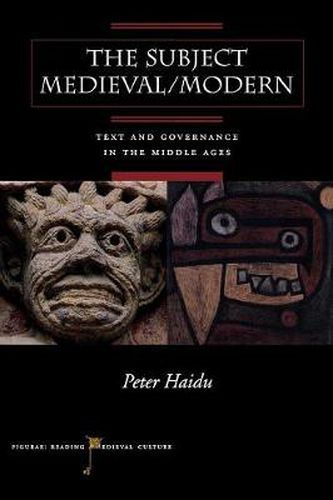Readings Newsletter
Become a Readings Member to make your shopping experience even easier.
Sign in or sign up for free!
You’re not far away from qualifying for FREE standard shipping within Australia
You’ve qualified for FREE standard shipping within Australia
The cart is loading…






This work presents a thorough historicist account of the development of subjectivity in the medieval period, as traced in medieval literature and historical documentation. Presenting the essence of the modern subject as resting in its subjection to specific historical forms of state power, the author examines literary texts from the Middle Ages that participate in the cultural invention of the subject. Overall, The Subject Medieval/Modern makes a case for the relevance of studying the Middle Ages to today’s world. The book examines the constitution of subjects in literary texts as the result of the interplay of violence, ideology, and political structures as an integral part of the process of state-formation between the 9th and the 15th centuries. Each text is considered a singular event, a unique, self-reflexive structure modifying conventions in ideological exploration to offer performative models of subjectivity. Some texts line up with political evolution, others take a critical distance.
$9.00 standard shipping within Australia
FREE standard shipping within Australia for orders over $100.00
Express & International shipping calculated at checkout
This work presents a thorough historicist account of the development of subjectivity in the medieval period, as traced in medieval literature and historical documentation. Presenting the essence of the modern subject as resting in its subjection to specific historical forms of state power, the author examines literary texts from the Middle Ages that participate in the cultural invention of the subject. Overall, The Subject Medieval/Modern makes a case for the relevance of studying the Middle Ages to today’s world. The book examines the constitution of subjects in literary texts as the result of the interplay of violence, ideology, and political structures as an integral part of the process of state-formation between the 9th and the 15th centuries. Each text is considered a singular event, a unique, self-reflexive structure modifying conventions in ideological exploration to offer performative models of subjectivity. Some texts line up with political evolution, others take a critical distance.